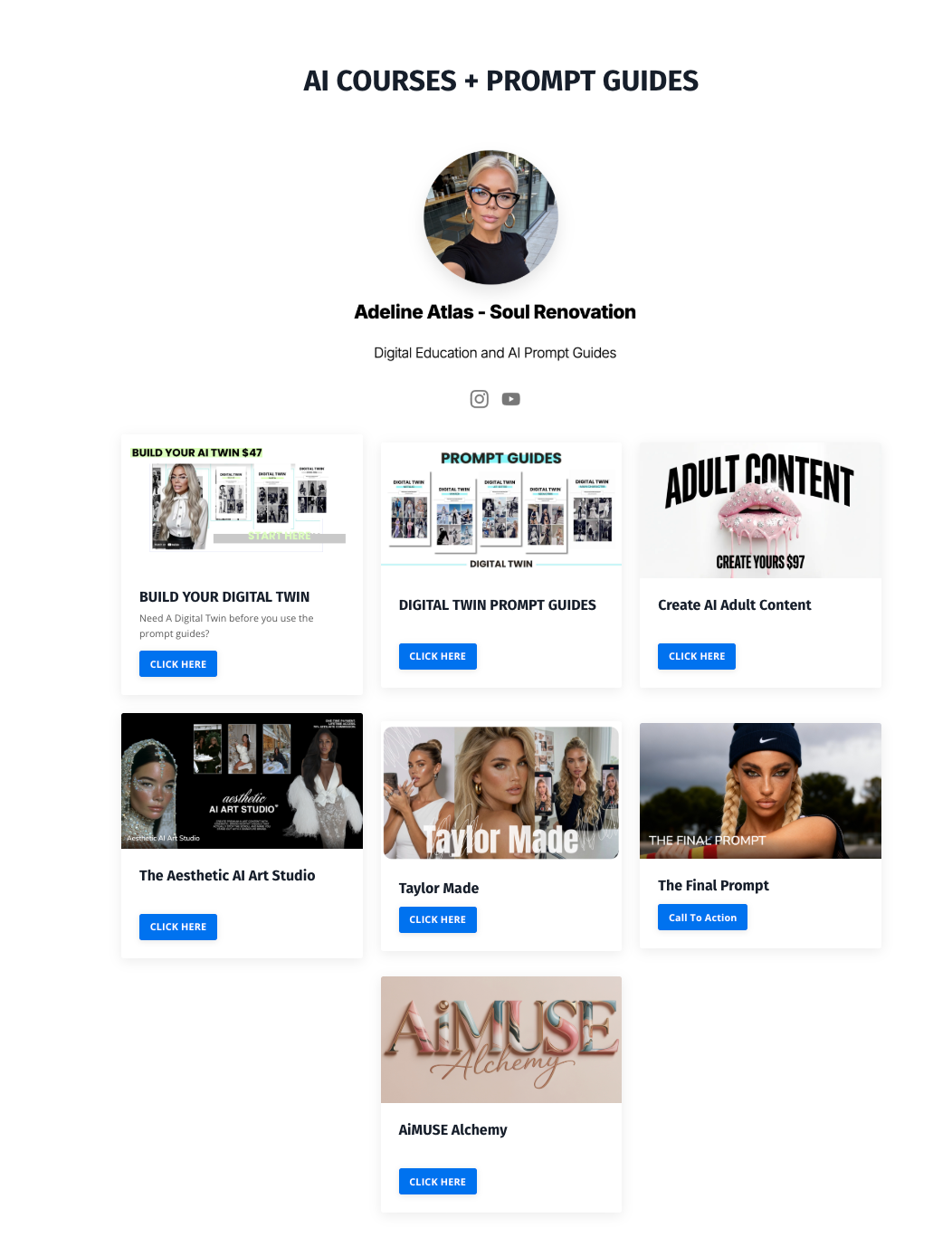Biometric Dating — Love in the Age of DNA Matching By Adeline Atlas
Jun 22, 2025
Biometric Bondage series: where we learn how anatomy is being linked to authentication in the AI era. I’m Adeline Atlas, 11-time published author, and today we’re entering a strange new frontier—one where love, intimacy, and compatibility are being rewritten by code, hormones, and biometric data. This is the age of biometric dating, where attraction is being quantified, and compatibility is being predicted—not by chemistry, but by literal chemistry.
Welcome to a world where DNA is swiped, blood is profiled, and your immune system is factored into your match score.
Let’s start with a foundational shift that’s already underway. Dating platforms are evolving. No longer satisfied with just collecting your age, interests, and location, they now want your genetics, your hormonal markers, and even your microbiome. Why? Because companies are betting that biological compatibility—things like MHC (major histocompatibility complex) genes and pheromone responses—can predict emotional chemistry, relationship longevity, and even sexual satisfaction.
Services like Pheramor, DNADating, and GenePartner already offer DNA-based matchmaking. You order a kit, swab your cheek, and send in your sample. They analyze your genes—especially your immune system markers—and match you with people who are biologically “different” enough to produce evolutionary fit offspring. Yes, the logic here is Darwinian: opposites attract, at least at the molecular level.
But these platforms aren’t just niche curiosities anymore. Mainstream dating apps are watching closely. In 2024, leaked internal memos revealed that a major U.S.-based app was researching biometric integration—testing hormonal profiles, scent preferences, and even voice biometric compatibility to refine their algorithms.
Here’s how it works:
- Immune system markers (particularly HLA/MHC complexes) influence how we perceive scent. Some research suggests we subconsciously prefer the smell of people whose immune genes are very different from our own.
- Voice tonality and speaking rhythm are now being analyzed by AI to gauge romantic compatibility and arousal potential.
- Heart rate syncing and pupil dilation—when measured through wearable tech or smart glasses—are being tested to identify mutual interest in real-time.
The promise? A smarter, more predictive, more biologically aligned dating experience. No more wasting time on matches that don’t “spark.” Just input your biological data and let the system find your ideal partner based on millions of micro-patterns in your body.
But this raises some disturbing questions.
First: Who owns this data? When you submit your DNA to a dating platform, it’s often stored indefinitely, sometimes shared with third-party analytics or sold to health data aggregators. Unlike a password, your genome can’t be changed. Once it’s out there, it’s out there forever.
Second: What happens when attraction becomes an algorithm? If your match score is based on biometric and genetic alignment, do you start filtering people based on bloodline? Do we risk reviving eugenic thinking under a Silicon Valley rebrand?
Third: What happens to serendipity? When AI dictates who you’re biologically best suited for, what room is left for mystery, growth, or soul connection? What if your soulmate doesn’t have “compatible microbiota”—do you never meet?
This is also where social engineering enters the picture. Imagine a platform nudging users toward “healthier” partnerships—pairing people based on genetic traits that reduce future healthcare costs or increase reproductive viability. You might think you’re choosing love, but the system might be choosing for you—quietly optimizing a population based on corporate or governmental priorities.
Let’s go further. Now imagine biometric rejections. Someone uploads their biometric profile and gets flagged as a poor match across the board. Too anxious. High cortisol. Genetic markers for depression. Poor facial symmetry. This isn’t fantasy—it’s profiling disguised as matchmaking. And once these systems scale, people may start receiving not just rejection—but biological disqualification.
And there’s more.
Companies like Kairos and Face++ are now offering real-time facial recognition that gauges micro-expressions—letting dating apps potentially rate your facial engagement during a conversation. Did you smile long enough? Blink too much? Display warmth? All of these cues can be scored, recorded, and fed into machine learning models to improve future match predictions—or worse, to exclude you from the pool entirely.
Now think about biometric dating in the workplace. As romantic apps blur into wellness platforms and corporate HR software, employers might begin nudging or discouraging relationships based on “data-driven compatibility.” Your office crush might soon be screened not just by HR—but by your genetic complement profile.
Even the world of sexual consent is being eyed through this lens. Some platforms are exploring biometric contract systems, where both parties’ wearable data confirms mutual arousal or readiness before intimate interaction proceeds. Sounds helpful on the surface—until you realize that data could be stored, subpoenaed, or hacked.
The endgame here is not just curated dating—it’s engineered reproduction. If biometric compatibility is pushed hard enough, we may see social pressure to date, marry, and reproduce with partners who produce the “best” data outcomes. And with the rise of embryo selection and gene-editing embryos, the notion of “data-optimized families” is not far behind.
This changes not just dating—but the nature of love itself.
In a world where every heartbeat, gene, and glance is scored, ranked, and matched… does your heart still get a vote?
There’s an illusion here—that more data equals more connection. But real intimacy isn’t built on metrics. It’s built on presence, risk, surprise, and choice. The more we outsource that to algorithms, the more we reduce love to logistics.
Here’s what to watch for:
- Genetic matchmaking being marketed as fertility support.
- Wearable-linked dating services offering “emotion syncing.”
- Platforms ranking users by reproductive or psychological viability.
In this brave new world, the matchmaker is no longer your friend. It’s a biometric system that might know your genome better than you do. And if you’re not careful, it won’t just choose your dates—it might someday choose your children.
Because when love is reduced to data, the outcome is not romance.
It’s selection.












